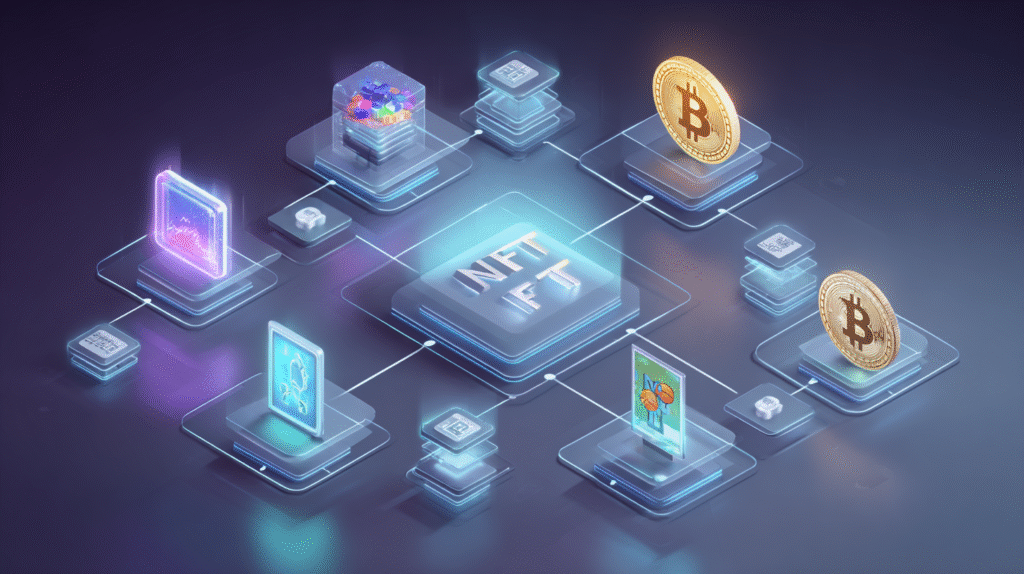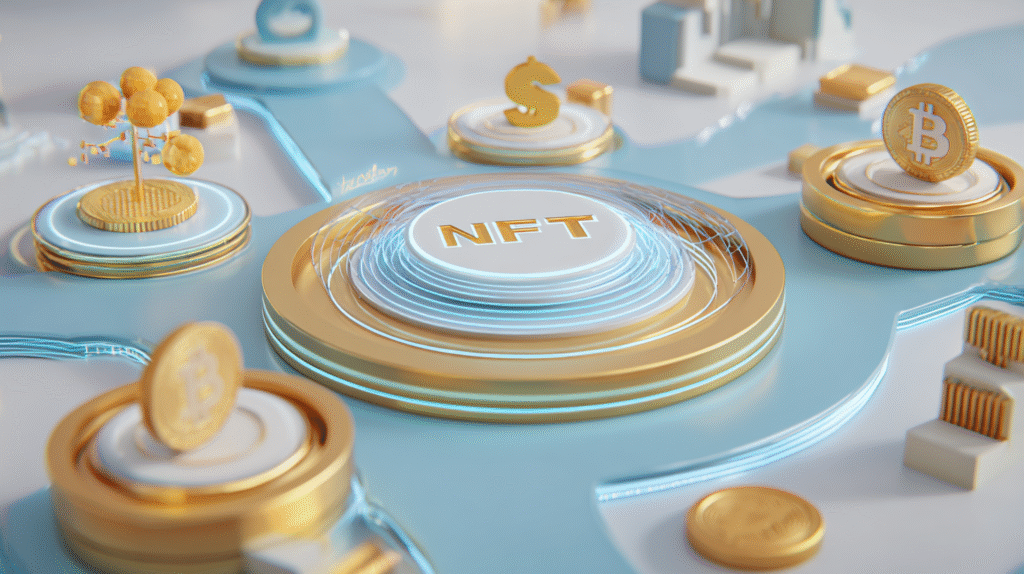Digital Assets: Beginner’s Guide to Cryptocurrencies & Tokens (2025)
Digital assets are reshaping the financial world. From Bitcoin to NFTs, they represent a new form of value that exists purely online. This guide will explain what digital assets are, their different types, why they matter, and how to get started as a beginner.
Before diving deeper, we recommend reading Introduction to Crypto for a broader overview and Crypto Trading for Beginners for trading basics.

1. What Are Digital Assets?
Digital assets are anything of value that exists in digital form and can be owned, transferred, or traded. Unlike physical assets such as cash or gold, digital assets live entirely online.
Examples include cryptocurrencies (Bitcoin, Ethereum), tokens (utility, governance), NFTs (unique digital collectibles), and even CBDCs issued by central banks.
2. Types of Digital Assets
2.1 Cryptocurrencies
The first category of digital assets is cryptocurrencies like Bitcoin (BTC) and Ethereum (ETH). They are decentralized money used for payments, trading, and investment.
2.2 Tokens
Tokens represent assets or rights built on top of existing blockchains. Examples include utility tokens (used within apps) and governance tokens (used to vote on protocol decisions).
2.3 Stablecoins
Stablecoins like USDT or USDC are pegged to fiat currencies such as the US dollar, providing stability in volatile markets.
2.4 NFTs
Non-Fungible Tokens (NFTs) are unique digital items representing art, music, or in-game collectibles. Unlike cryptocurrencies, they cannot be exchanged on a 1:1 basis.
2.5 CBDCs
Central Bank Digital Currencies are state-issued digital currencies that combine blockchain features with regulatory oversight.

3. Why Digital Assets Matter
Digital assets are important because they redefine ownership and value in the digital age. They enable global access to financial systems, democratize investments, and power the emerging Web3 economy.
- Borderless: Accessible anywhere with internet.
- Efficient: Faster, cheaper transactions than traditional systems.
- Innovative: Fuel DeFi, NFTs, and the Metaverse.
4. Benefits of Digital Assets
- Transparency: Public, verifiable records.
- Decentralization: No single authority controls them.
- Accessibility: Anyone can participate.
- Ownership: True self-custody via wallets.
5. Risks & Challenges
While digital assets offer many opportunities, they come with risks:
- Volatility: Prices can swing drastically.
- Security: Hacks, scams, and phishing attacks are common.
- Regulation: Legal frameworks are still evolving.
- Complexity: Requires technical knowledge to manage safely.
6. How to Get Started
- Choose a Wallet: Store assets with MetaMask, Trust Wallet, or hardware wallets.
- Pick a Reliable Exchange: Start with Binance, Bybit, or OKX.
- Start Small: Buy Bitcoin, Ethereum, or stablecoins.
- Learn the Basics: See our Crypto Trading for Beginners guide.
7. Future of Digital Assets in 2025 and Beyond
The future of digital assets looks promising, with increasing adoption by financial institutions, integration with traditional finance, and innovations like tokenized real-world assets and AI-powered DeFi platforms.
8. FAQ: Digital Assets
Are digital assets the same as cryptocurrencies?
No. Cryptocurrencies are one type of digital asset, but the term also includes NFTs, tokens, and CBDCs.
How do I store digital assets safely?
Use hardware wallets for maximum security and always back up your seed phrase offline.
Are NFTs considered digital assets?
Yes, NFTs are a unique type of digital asset representing ownership of digital items.
What are the risks of digital assets?
Volatility, scams, regulation uncertainty, and technical complexity are key risks.
